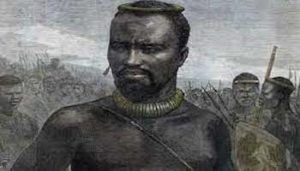
Bayano
*The birth of Bayano is celebrated on this date in c 1520. Also known as Ballano or Vaino, he was an African revolutionary.
Captured from the Yoruba community in West Africa, it has been debated that his name means idol. Different tales tell of their revolt in 1552, beginning either on the ship or after landing in Panama's Darien province near Colombia. Bayano's forces numbered nearly a thousand Cimarrons and set up a palenque near the modern-day Chepo River. Many of which successfully fended off Spanish control for centuries using guerrilla war and alliances with pirates or indigenous nations.
They fought their guerrilla war for over five years while building their community. However, the most important primary source, written in 1581 by Pedro de Aguado, devotes space to their religious life, and describes the activities of a "bishop" who guided the community in prayer, baptized them, and delivered sermons in a Christian manner. Bayano gained truces with Panama's colonial governor, Pedro de Ursúa, but the governor captured the guerrilla leader and sent him to Peru and Spain, where he died.
Bayano's revolt coincided with that of King Miguel de Buría, Luis de Mozambique, and other attempts for freedom during the following century. Bayano's name has become immortal in the Panamanian consciousness by naming a major river, a lake, a valley, a dam, and several companies after him.